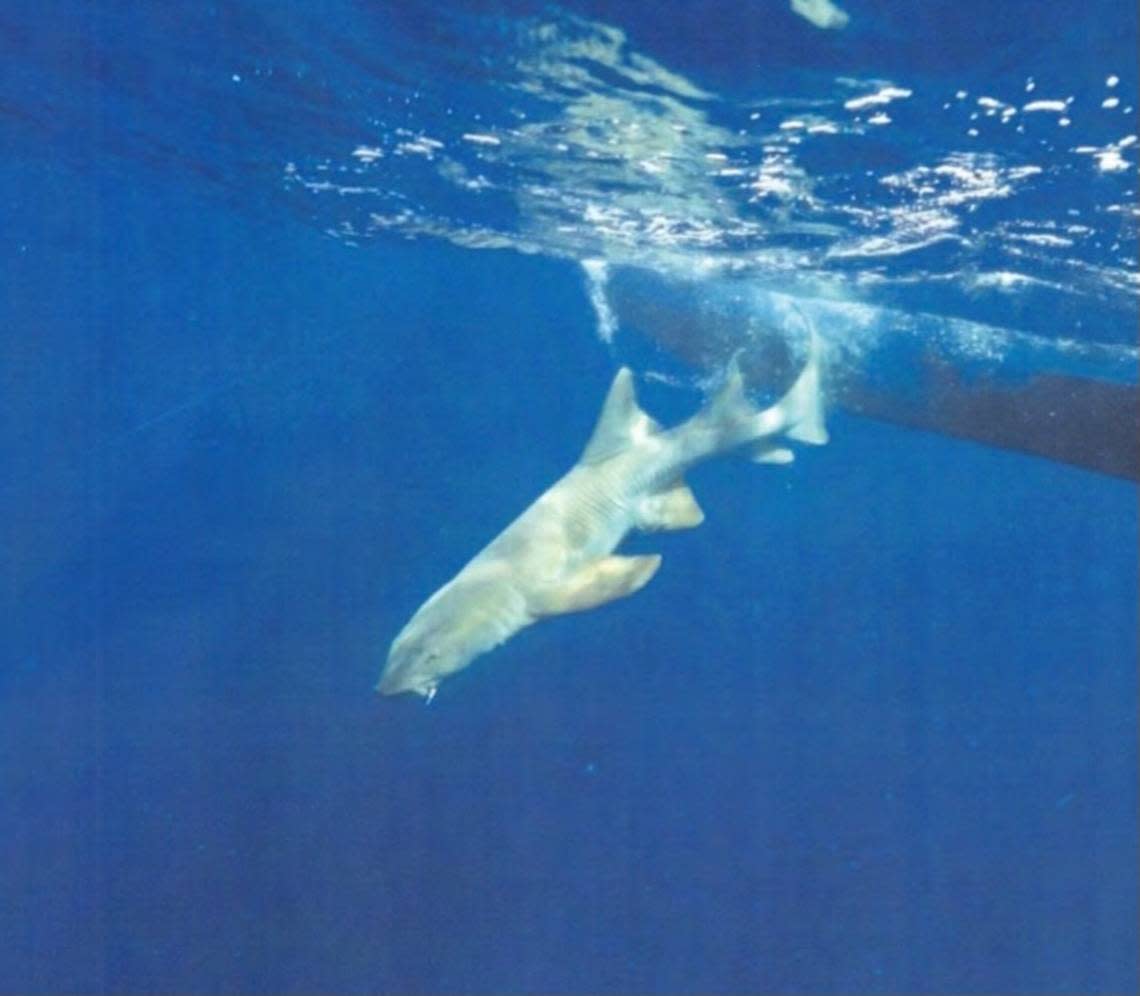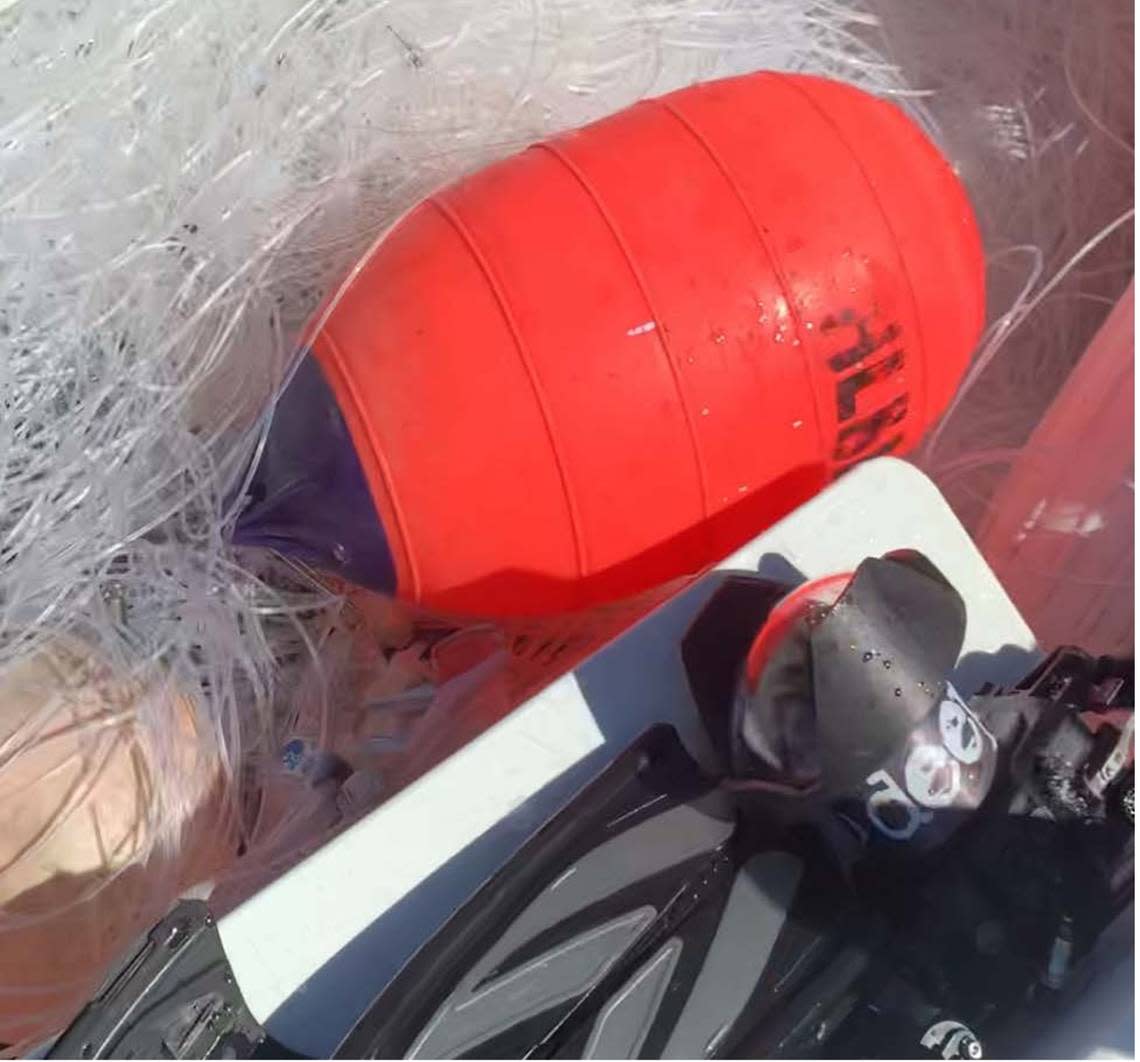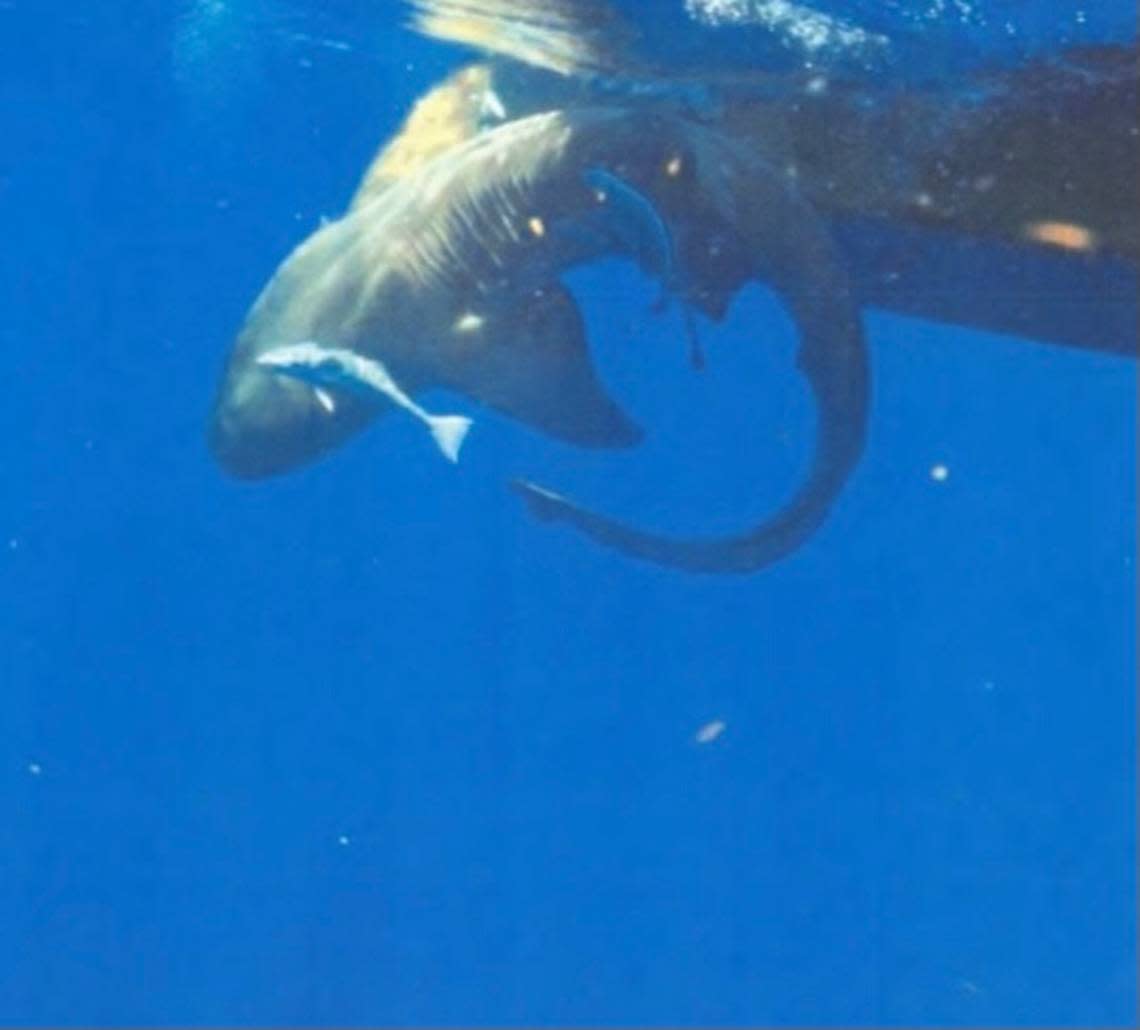Why two South Florida tour guides who freed 12 sharks are now paying for their actions
John Moore Jr. makes his living captaining a boat that takes eco-tourists diving to see sharks swimming off the coast of South Florida.
He loves the apex predators and feels their survival is essential to maintaining a balanced ecosystem.
But he said he’s not willing to spend time in federal prison to save one, or a dozen.
“I love sharks, don’t get me wrong,” he said. “But I don’t love them enough to break the law to protect them.”
But that’s what he faced because of what he described as a good deed in 2020.
“I still feel a little rattled and don’t feel like the justice system was very just in this case,” Moore, 56, told the Miami Herald, a little over a week after a federal judge in West Palm Beach sentenced him and his mate, Tanner Mansell, 29, to one year of probation on a charge each of theft of property within a special maritime designation.
It could have been worse for the Jupiter-based crew. The two men had been facing five years in prison. But even with no time behind bars, they’re now convicted felons.
Rescuing the sharks
During the afternoon of Aug. 10, 2020, Moore was coming back to shore about three miles from Jupiter Inlet with six clients on board when he saw what he thought was a bright-orange “dive sausage.” That’s a flotation device to mark the spot where a person is scuba diving.
Moore said he was a little concerned because he did not see any boats around. He and Mansell began pulling in the buoy and soon discovered it was attached to heavy-duty monofilament fishing line.
“We started pulling it in, and it just kept going,” he said.

Moore said he then saw a swimming lemon shark attached to a hook connected to the line.
Moore and Mansell had run into a fishing longline — a controversial piece of angling gear consisting of sometimes up to several miles of monofilament line, weights and hooks, designed to snag dozens of fish at a time.
“We really didn’t know what to make of it,” Moore said.
They freed the lemon shark from the longline, and while they continued to reel in the rest of it, Moore said he instructed another crew member to call the National Oceanic and Atmospheric Administration and the Florida Fish and Wildlife Conservation Commission so the proper authorities knew what they found and what they were doing.
“At that time I thought it was a ‘jug line’ that someone put out there illegally to get rid of sharks.” Moore said.
A Fish and Wildlife officer called back. Moore said he told the officer what he found and that he was freeing sharks. The officer didn’t tell him to stop, but said he could not come out to his location to look at the line, Moore said.
FWC Officer Barry Partelow said in his report that he received a call from Moore around 4:30 p.m. on Aug. 10, 2020, saying he was releasing sharks and grouper from a longline he encountered.
The officer didn’t say in the report that he told Moore to stop what he was doing. Rather, he told Moore FWC officers typically don’t remove fish from hooks without knowing the full situation.
Later in the afternoon, Partelow saw what turned out to be Moore’s boat approaching his patrol vessel. The officer said he told Moore to bring the line back to the dock, “and I would meet up with him later in the day or the next day to figure out what happened.”
Meanwhile, in a matter of about three hours, Moore and Mansell freed eight tiger sharks, two great hammerhead sharks, two lemon sharks and two Goliath groupers, the latter of which is a protected species.
Moore said he even asked the six clients on his boat, four of whom are police officers in other states, to film the incident so they could give authorities footage of what happened.
Something was wrong
It soon became apparent that Moore shouldn’t have gone near the gear. The Florida wildlife officer found out the line was set by a commercial fishing boat that was specially licensed by NOAA.
“Obviously, if I thought this was an active, legal fishing line, we would have never touched it. I would never mess with someone’s fishing gear,” Moore said. “I was a commercial fisherman. My son is a commercial fisherman. My friends are commercial fishermen.”
Moore, having longlined himself years ago, said the gear is typically marked with a large buoy, but this one only had a small polypropylene ball attached with faded lettering. It was borrowed by the commercial fishing boat crew from another boat.

He said he even tried to pay the commercial boat owner the $1,300 prosecutors say was the value of the sharks freed.
Mansell, who is an underwater photographer and handled sharks for a film shoot of the Shark Week series on the Discovery Channel in 2021, could not be reached for comment.
What the feds said
Federal prosecutors said both men should have known that the longline they handled and eventually brought back to shore was legitimate. Disputing Moore’s description of the buoy, prosecutors maintained throughout the case that it was attached to a large orange buoy clearly marked with the name of the vessel to which it belonged, the Day Boat III.
The prosecutors also maintained that the state Fish and Wildlife officer watched as Moore’s boat entered Jupiter Inlet and stopped the vessel. Moore told the officer that the line was an illegal shark fishing set, prosecutors said. The buoy — “which would have established the obvious legality of the shark fishing effort” — was gone, prosecutors said in a statement after the men’s conviction in December.
No ‘environmental terrorist’
In the days following the shark rescue, a man who writes a blog interviewed Moore and took photos. People who reacted to the story mostly fell into two camps: fishermen and others sympathetic to the charter and commercial industry who feel there are too many sharks, and environmentalists and those who want more shark conservation efforts.

Moore said both sides misinterpreted his efforts.
“They tried to paint me as like some environmental terrorist,” he said, “And, I’m far from it.”
